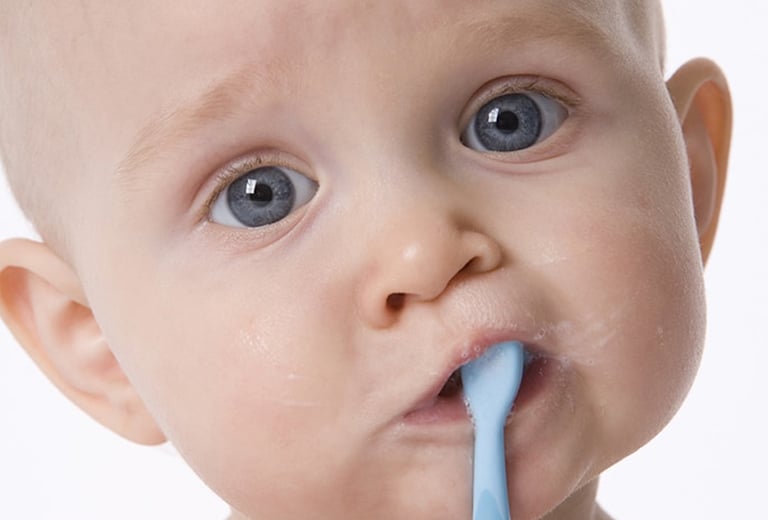
A child’s smile is truly magical. Not only is their joy contagious, all those cute, small baby teeth really make their smiles something special. However, what many people don’t realize is that childhood dental care is seriously underplayed. In fact, tooth decay is considered one of the most common chronic diseases in young children. Hearing this breaks our heart, so we want to make sure that you know exactly what to do to best care for baby teeth.
The Importance of Care for Baby Teeth
First of all, don’t worry. Parents aren’t the root cause of this chronic disease—lack of information is. When we think of baby teeth, we know they’re going to fall out, so most parents don’t worry too much about extreme dental hygiene. Yet what they don’t realize is that the health of your baby’s teeth is integral for proper development. Healthy baby teeth lead to proper speech development, better nutrition, and higher self-esteem. So how can you make sure that you’re doing everything you can to care for your baby’s teeth? Check out these great tips.
Bottle Rot
First and foremost, we recommend avoiding any and all fruit juices. Fruit juice is full of excess sugar that is detrimental to sensitive baby teeth. Plus, since babies often take much longer to drink these sugary drinks, their saliva doesn’t have time to wash it down. Instead, it accumulates and sits in their mouths for long periods of time and leads to the gradual decay of their sensitive baby teeth. Saliva takes about a half an hour to wash away sugar, so elongated periods of consumption wreak havoc on oral health. This is such a common phenomenon that it’s been named. Bottle rot is very real and causes a persistent degradation of enamel. While many people think this just applies to sugary drinks, it also applies to milk. There’s a surprising amount of sugar in milk, so if you want to avoid bottle rot, then only give your child these types of drunks during meal times—not in sippy cups that they drink from throughout the day.
Dangers of Thumb Sucking and Pacifiers
Another thing that leads to premature damage and decay is thumb sucking and pacifier use. While this is a natural habit during young ages, the longer it continues, the more dangerous it is. Both of these contribute to improper dental alignment and serious dental issues like an open bite or cross bite. While thumb sucking and pacifier use is often attributed to feeling comforted and safe, it should stop around age four.
If you’re worried about your child’s oral health, consider getting them sealants. Sealants help to cover deep pits in a child’s tooth so that they are easier to clean. The process of getting sealants is easy, painless, and fast.
If you’re interested in having your child’s teeth covered with sealant, or in learning more about how to care for their teeth, give the professionals at Artistic Dental a call today. Your dentist is here to help with regular checkups, cleanings, and any advice that you may need when it comes to caring for your child’s teeth.
